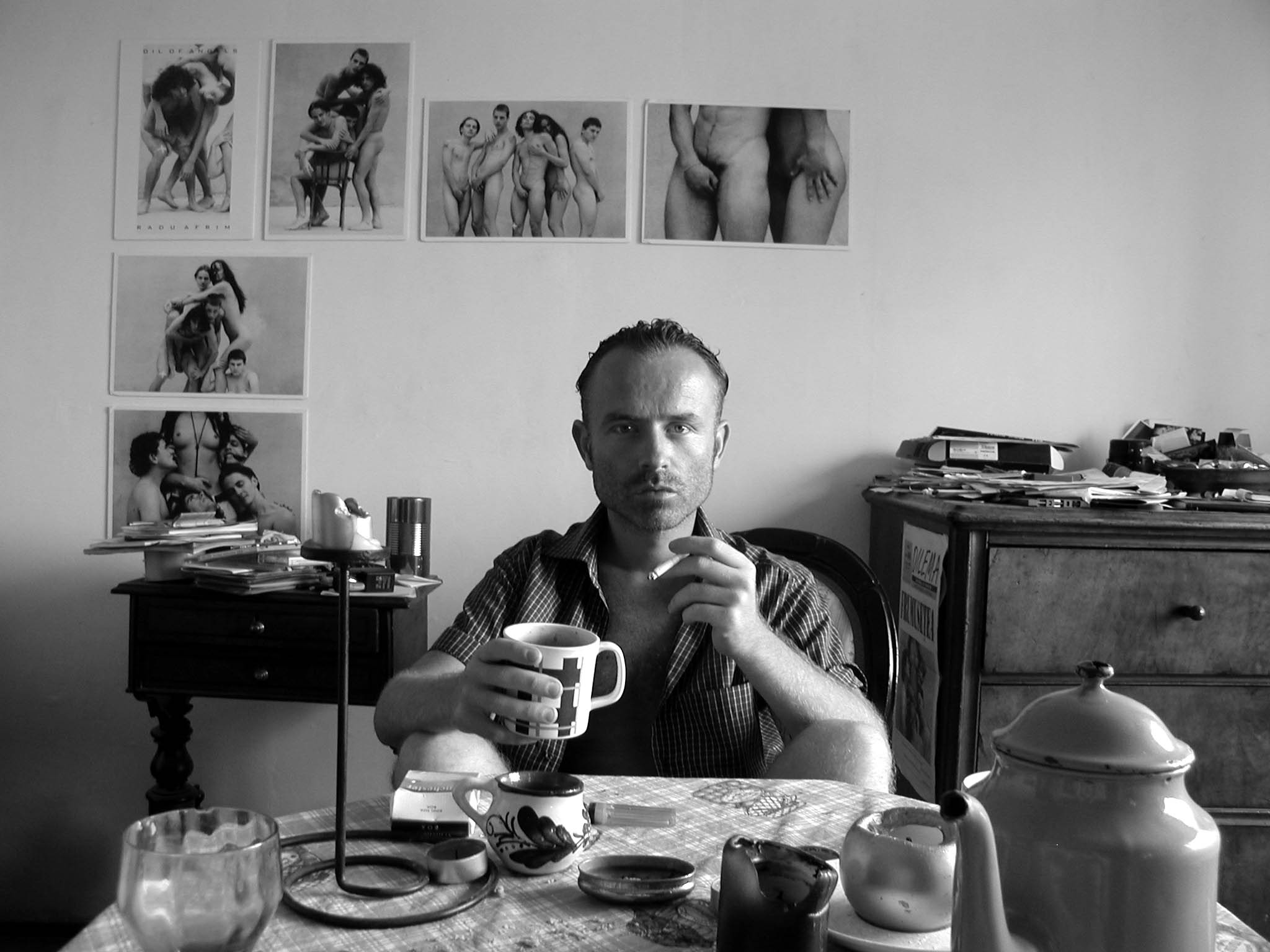about the production
There are two principal scenes: the nameday of Irina and the dialogue between Andrey and Natascha in the bed. Afrim builds the situations in his special way and it takes some time for the viewer to get used to the disintegrated tempo and confusing atmosphere: the scenes are very chaotic, we follow many stories and dialogues at the same time, the actors dance, shout, speak and sing simultaneously. Nevertheless, this chaos has its magic of spontaneity, it is natural and playful. The scenes always reach the point of transparency, the important things are revealed and empty space is open for a new situation. Afrim looks at the Three Sisters with a view of a child as well.
(...)
Afrim uses deconstruction, effects, and a special kind of kitsch. Therefore, some moments and concepts can become puzzling or confusing (e.g. the image of a woman – a sex symbol or a troublesome hysterical woman; war as the background of this story of the Three Sisters; many updated details – e.g. the costumes). Afrim does not deconstruct the original to destroy it, but to persuade the viewer about its new reading, new point of view, about contemporary Chekhov.
Romana Maliti, Theatre in Meantime
The director’s radical reinterpretation of the classical work reveals profound and innovative meanings. In a coldly lit space, bringing together the audience and the actors, props and costumes connect our present days with the time when the play was written. The immediate reality and the banality of everyday life give birth to shocking images. Radu Afrim mingles and violently usurps the characters’ illusions and ideals. In the performance hallucinatory images follow each other in dynamic tempo. Afrim’s explosive and offensive vision contains deep human truth. Well-synchronised actors create expressive group scenes as well as brilliant individual moments. Three Sisters is a cruel and sensual performance, focusing on a sharp and poetic humour.
Ludmila Patlanjoglu, Cotidianul
Radu Afrim draws us into the world of his thoughts, impressions, feelings and fantasies materialised on the stage and intensified by his personal relation to the Chekhov’s text. The well-known characters keep all their basic references and in addition, they encompass behaviour and attitudes offered by the intelligent and sensitive interpretation free from clichés. An extraordinary plasticity models the whole atmosphere, which is characteristic for the Chekhov’s skills to alternate ridiculous and sublime, irony and high ideals.
Alice Georgescu, Ziarul Financiar
Radu Afrim is a very provocative reader, interpreting inventively the Chekhov’s world, already fading away in misinterpretations and false conceptions. The characters are the jugglers with time in their never-ending waiting for the change, waiting for their real life to begin. They laugh joyfully, they suffer desperately, but in fact, they play like children with their own delusions. The three sisters are kept in a stifling cell that oppresses and tensions their individualities. They can hear only their own interior broken rhythm. Moscow becomes a glassy globe, like the little jars with old photos. Radu Afrim’s performance is amazing for its contrast between the overwhelming sadness and sharp, piercing humour engulfing an illusory and nevertheless deeply real world.
Mihaela Michailov, Observatorul cultural
A spectacle like this one is a chance to form and reform your own ideas about theatre, a way of dialogue with those who create the spectacle. Three sisters permits the critic to evolve
Ian Herbert
creators
directed by Radu Afrim
composer, stage and costume-designer: Radu Afrim
choreography: Fatma Mohamed
characters and cast:
Andrej Prozorov: Daniel Rizea, Nataša: Mirela Bucur Pal, Oľga: Mona Codreanu, Máša: Inna Andriucă, Irina: Fatma Mohamed, Kuligyn: Adrian Ancuţa, Veršinin: Florin Vidamski, Tuzenbach: Romulus Chiciuc, Soľonyj: Tiberiu Tudoran, Čebutykin: David Kozma, Fedotík: Ştefan Lupu, Rode: Nicu Ungureanu, Anfisa: Elena Popa, Mme Veršininová: Camelia Paraschiv and the children: Adela Ancuţa, Cosmina Cucu, Petra Pal, Nicolas Steiner
director

Radu Afrim (1968)
A provoking artist, he belongs to the most talented and experimenting young Rumanian directors. He has worked at home and abroad, with independent theatre ensembles as well as in official state theatres, though he calls them „museums of theatre“. His productions put very often on stage the stories of castaways as well as thoroughgoing remakes of classical literature – No Mom’s Land by Samuel Beckett, Three Sisters, loosely based on Anton Pavlovich Chekhov, Algas – Bernarda’s House Remix based on Frederico García Lorca. He has transformed among other Rumanian plays also Diogone the Dog based on Dumitru Solomon and recently Attic Looking to Death by Matei Visnieca. Radu Afrim was awarded several prominent Rumanian awards – for the production Why Does the Child Boil in the Polenta (based on: Aglaja Veteranyi) Grand Prix at the Piatra Neamt, Festival (2003) and The Best Performance Award at the Contemporary Drama Festival in Brasow (2003). For the productions eurOcean-Café and BluEscape he has won the Prize for the Best Director and the Prize for the Best Performance in Lausanne.
Materials available
Script of the productione: SK, RO
If you are interested in these materials, write to archivy@nitrafest.sk
